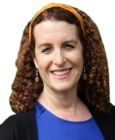Confidence
Tune Up Your Therapy with Healing Song and Support
Self-transformation through singing lessons in a caring guided group
Posted September 14, 2016

Kim stood in front of the Natural Singer class, burst into tears, sniffled, and shook her head that she could not sing the song she had planned. During her childhood, Kim had enjoyed crooning “Kumbaya” at summer camp. What happened during the ensuing years that made Kim lose her voice?
Claude Stein, facilitator of the Natural Singer workshops, doesn’t ask for those negative details. In fact, if students start explaining “what went wrong,” he smiles and puts his hand up to his lips. He asks the students, instead, to focus on what they want to achieve. Like many who use cognitive therapy approaches, Stein believes repeating the problem just solidifies it.
Stein is not trained as a psychotherapist but he has been working for three decades at reducing performance anxiety and improving creativity—with people from top pop stars to those who are afraid to sing in the shower. With stunning ease, he incorporates Cognitive Behavioral and Gestalt techniques into his Natural Singer workshops and private sessions, in-person and online.
At the beginning of his five day workshop, for instance, each student identifies a goal. Following in the footsteps of Aaron Beck and Albert Ellis, Stein helps students avoid absolutist, all-or-nothing thinking. To the student who says he wants to “become confident singing loud” Stein amends the goal to, “Become more confident singing loud, because it’s not like you have no confidence now and it’s not like you’ll have total confidence at any point. You are on a journey.” Similarly, to the student who says she wants to recover her voice after a trauma, which rendered her almost mute, he suggests that she aim to find “more of” her voice, which she does during the week, (and sings magnificently)
Stein asked Kim to state, in one line, what she was thinking as she wept in front of the class. “I’m afraid I’ll sound really bad.” she answered, through her tears. “And what are you afraid will happen if you sound really bad?” Stein asked, his broad face emanating kind understanding. “They’ll hate me,” Kim replied. Stein then gently explored this irrational thinking. He urged her to look into the eyes of her classmates, who had also all sung in front of the group. “Do they look like friend or foe?” Stein asked. “Friends,” Kim laughed through her tears. “Sing after me, looking at them, ‘You support me….I can sing….My voice is strong.’” Stein enabled Kim to confront her irrational fear with nary a word of psychological jargon.
Kim initially squeaked out the affirmations. Then she held the notes as she sang them with a bit of a smile, looking into her classmates’ eyes. Kim’s voice grew as she sang, the tears dried, and her voice held fast. Stein asked the class to sing back, “Your voice is beautiful….We want to hear you…Please sing to us.”
Finally, Kim sang the song she had originally intended. Applause echoed. (Applause for all is a requirement in Stein’s classes). He urged Kim to take a bow. And another. And another. Two days later, toward the end of the workshop, Kim stood and sang in front of the group as if she had never previously doubted that she could. Clearly, she had been through an immensely healing experience, like those crafted by Gestalt therapists.
And so it went, throughout the five-day Natural Singer workshop. People from their mid-twenties to mid-seventies stood, sang, smiled, wept, applauded, and were transformed.

Stein—a musician, songwriter, and renowned singing teacher—helps singers at all levels find and strengthen their voices. Some need technical tips to overcome problems such as nasality or breathiness, while others need confidence and healing experiences to overcome fear and trauma. In a free-flowing environment rife with social support, technical know-how, and his piano backup, Stein creates community and facilitates individual growth.
Jerome launched into the folk song, “The Water is Wide. I Can’t Cross O’er.” His voice was deep, soft and low—more of a croak than a melody. Accompanying him on piano, Stein kept raising the key until Jerome’s voice resonated fully. And then Stein worked with him, one note at a time, as Jerome tried and eventually managed to sing right on pitch. As Jerome’s voice found the notes, Stein asked Jerome to echo him in singing the essence of the lyrics, with some well-chosen piano support: “I need help….I cannot do this alone….I’m so glad you are with me.” Tears streamed down his classmates’ faces as Jerome sang out his desire for connection, clearly singing from his heart. His voice became strong and true. Like many, Jerome shook his head after he sat down and his classmates applauded him. He did not know he was capable of such singing.
Maggie, a psychologist, said her challenge was to have fun. She sang a song her father had taught her, stiffly and sweetly. Stein varied the accompaniment. “Now sing it like a cabaret singer! Let’s see you move around.” “This time like a dancer.” “Now as if you’re drunk.” And Maggie did! She and her classmates were laughing and clapping wildly by the end.
These individual voice sessions—in front of the group—are interspersed with group voice exercises that range from learning ways to control the breath to singing to each other, “Come on bring your song ashore, I will hear you.” Stein’s work embodies both encouragement and acceptance – two keys to a remarkable practice session AND psychological healing.
Stein describes his process: “Magic happens when we sing with energy, and with an intention that supports the lyrics and responds to the music. Timing, pitch, resonance, and energetic dynamics align with the heart of the singer and with the heart of the song. Performances become unique, inspiring, and unforgettable – both as growth experiences and as artistic endeavors.”
During weeks following the workshop, participants reported they returned to their "real lives" feeling more open and confident, and felt more resilient in facing their challenges. Sing on!




